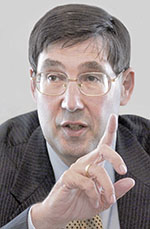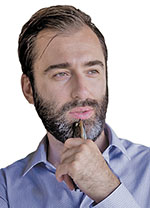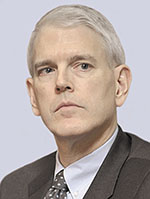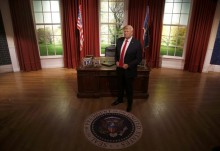On Monday evening, almost all the world mass media reported that US President Donald Trump had invited his Russian counterpart to visit the White House, but the two countries had not yet begun to prepare for this summit.
“I hope the Americans won’t abandon their proposal to discuss the possibility of holding the summit. When our presidents spoke on the phone, Trump suggested having the meeting in Washington at the White House,” the media quoted Vladimir Putin’s aide Yury Ushakov as saying. The aide noted that the possibility of a meeting in the first half of the year was not discussed.
A few hours later, the White House confirmed this information. White House Spokesperson Sara Sanders said that a Trump-Putin summit was being planned, but she disclosed no details. “As the president himself confirmed on March 20, some hours after his last call with President Putin, the two had discussed a bilateral meeting in the ‘not-too-distant future’ at a number of potential venues, including the White House,” Sanders said. “The administration had no further comment on the matter.”
This news, which is two weeks late because the presidents spoke on March 20, when Trump congratulated Putin on being reelected president, raises a number of questions. Firstly, why was this information not reported to the general public on the same day? Secondly, why was the Russian side the first to leak this news to the press? Thirdly, what results can this summit produce for the world, particularly, for Ukraine, where Russia continues its aggression in the Donbas and flouts the Minsk Agreements?
It will be recalled that Trump has met Putin twice since he assumed the office of president – in July 2017 at the G7 summit in Hamburg and in November at the APEC summit in Vietnam. During the second meeting they shook hands and exchanged brief phrases, as the participants were being photographed.
US experts are taking a negative attitude to the meeting of President Trump with the Russian leader. Michael Carpenter, advisor to ex-Vice President Joe Biden and ex-Deputy Assistant Secretary of Defense for Russia, Ukraine, Eurasia, tweeted: “A White House summit with Putin is a horrible idea. Not after a chemical attack in the UK. Not as Russian soldiers are killing Ukrainians. Not while Russia obstructs a pressure campaign on North Korea… Under the right conditions, a meeting in a place like Geneva or Helsinki could (not now) be appropriate. But a White House meeting rewards Putin for his aggressive behavior and is a bad idea.”
Meanwhile, Aaron David Miller, a Woodrow Wilson Center analyst, criticized Trump’s decision even more harshly. “Inviting Putin to the White House – an act so brazen and norm-extinguishing that it defies rational explanation – it is not just inviting the fox into the hen house, but giving it the keys too,” he tweeted.
The Day requested experts to comment on Trump’s invitation to Putin to hold a summit in the White House and say what results can be expected from the meeting.
COMMENTARIES
John HERBST, Director, Dinu Patriciu Eurasia Center, Atlantic Council; former US Ambassador to Ukraine; Washington, D.C.:
 “The pattern of US policy toward Russia under the Trump Administration has been set for over a year. The President harbors an unexplained softness for the Kremlin and President Putin. This is evident in his public statements – what they include and what they omit – regarding Russia and its leadership. So, in the last telephone conversation between the two Presidents, not only did Mr. Trump congratulate Mr. Putin on his election victory, but he apparently also discussed a possible summit with the White House as a venue.
“The pattern of US policy toward Russia under the Trump Administration has been set for over a year. The President harbors an unexplained softness for the Kremlin and President Putin. This is evident in his public statements – what they include and what they omit – regarding Russia and its leadership. So, in the last telephone conversation between the two Presidents, not only did Mr. Trump congratulate Mr. Putin on his election victory, but he apparently also discussed a possible summit with the White House as a venue.
“But the policies of the Trump Administration have been much tougher and sounder than the President’s statements – and tougher and better than the policy of the Obama Administration. So, the Administration has decided to send Javelins to Ukraine; has issued a National Security Strategy that identifies Russia as a major challenge; and has expelled 60 Russian diplomats.
“Mr. Ushakov probably released the information about a possible White House meetings because, knowing the Trump Administration pattern, he could not be sure that the Americans would; and the Kremlin wanted this information out.
“Given the current state of diplomatic relations, a summit soon is not likely. This is something that Mr. Ushakov has also implied. Barring a major change in Moscow’s aggressive policies, it is hard to imagine a summit between the two Presidents leading to major developments.”
Peter ZALMAYEV, US political scientist of Ukrainian origin; director, Eurasia Democracy Initiative:
 “By all accounts, the invitation to hold a summit in the White House was given impulsively, in the spirit of Trump. As in the case of Kim Jong-un, it came as a surprise for his inner circle.
“By all accounts, the invitation to hold a summit in the White House was given impulsively, in the spirit of Trump. As in the case of Kim Jong-un, it came as a surprise for his inner circle.
“As for the deals the White House occupant wants to make with his Kremlin counterpart, I think Trump may try to reach an agreement with Putin on Syria, sign some not-so-ambitious documents on cooperation and nonaggression (remember Wagner?), and so on. They can also begin a dialog on the Korean peninsula. One way or another, the manner in which Trump invited his Russian counterpart, his unwillingness to criticize Putin by name, including in the Skripal case, reduce Trump’s chances to ‘strike a bargain’ with Putin who feels the weakness, vanity, and impulsiveness of the US president.
“I think the very fact that Trump did not mention the poisoning of Skripal, congratulated Putin on the victory, and suggested a meeting with him proves again that the US president is spontaneous and impulsive to a large degree. He is thus going to surrender in any future negotiations, without setting any preliminary conditions. This does not befit the author of The Art of the Deal.”
Steven PIFER, senior fellow in the Arms Control and Non-Proliferation Initiative, Brookings Institution, Washington, D.C.:
 “The White House confirmed that there was a discussion of a Trump-Putin meeting, though it said that Washington was only one possible venue. Summit meetings can be useful for moving relations forward, and a summit between the US and Russian leaders might make sense if (1) it is well-prepared and (2) if Mr. Trump is prepared to challenge unacceptable Russian behavior, such as its aggression against Ukraine, its interference in the 2016 US presidential election and the attempted assassination of the Skripals. Unfortunately, however, Mr. Trump has been reluctant to criticize Kremlin actions and, by most accounts, he does not devote much time to preparation. Mr. Putin would come to the summit very well prepared.”
“The White House confirmed that there was a discussion of a Trump-Putin meeting, though it said that Washington was only one possible venue. Summit meetings can be useful for moving relations forward, and a summit between the US and Russian leaders might make sense if (1) it is well-prepared and (2) if Mr. Trump is prepared to challenge unacceptable Russian behavior, such as its aggression against Ukraine, its interference in the 2016 US presidential election and the attempted assassination of the Skripals. Unfortunately, however, Mr. Trump has been reluctant to criticize Kremlin actions and, by most accounts, he does not devote much time to preparation. Mr. Putin would come to the summit very well prepared.”








